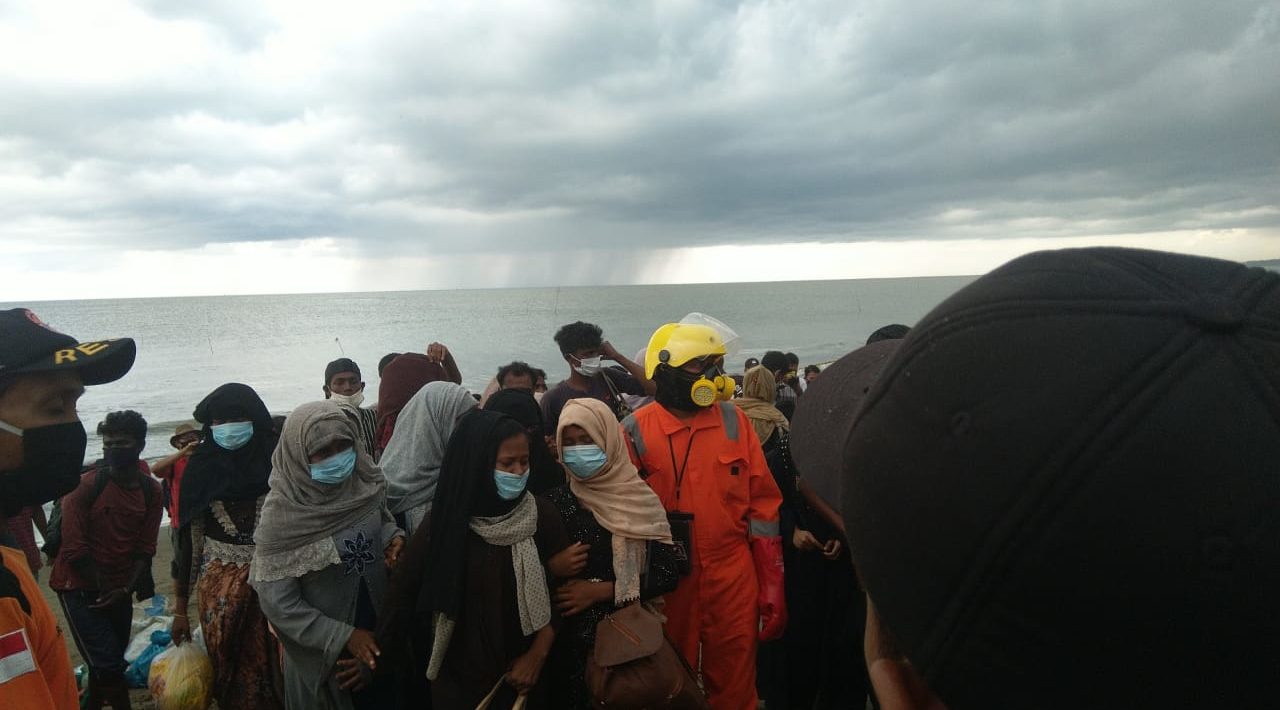Responding to the disembarkation of 94 Rohingya refugees in North Aceh today, Amnesty International Indonesia’s Executive Director, Usman Hamid, said:
“Today’s disembarkation of Rohingya refugees is a moment of optimism and solidarity. It’s a credit to the community in Aceh who pushed hard and took risks so that these children, women and men could be brought to shore. They have shown the best of humanity.
“In 2015, when the ordeal of Rohingya people seeking safety by boat reached another peak and hundreds lost their lives, it was again local communities in Aceh who showed true leadership.
“But this heart-warming news mustn’t end here. These refugees need lasting protection. And after all they have been through at sea, what they need the most now is shelter and safety.
“The Indonesian government must provide these survivors with their basic needs and must under no circumstance send them back out to sea. Ahead of the ASEAN summit which begins tomorrow, today’s dramatic episode shows the desperate urgency of a regional dialogue to prevent more deaths at sea.”
Background
On 25 June 2020, a boat carrying 94 Rohingya refugees disembarked in North Aceh after local people urged authorities and protested until they were brought to shore. A day earlier, the boat was spotted in Seunuddon Beach, North Aceh, by local fishermen who then reported their finding to local authorities.
These 94 survivors have been brought to a local mosque, and the authorities have yet to indicate how they will be cared for. Amnesty International Indonesia is coordinating with local groups and refugee organizations to seek updates.
International law imposes obligations on states to protect the human rights of refugees arriving on their shores.
The principle of non-refoulement obliges states not to return anyone to a place where they would be at risk of persecution or serious human rights violations. The principle is the cornerstone of international refugee protection and is fundamental to the absolute prohibition of torture and cruel, inhuman or degrading treatment or punishment.
Indonesia is not a party to the 1951 UN Convention Relating to the Status of Refugees (Refugee Convention) or its 1967 Protocol. However, the principle of non-refoulement is also protected under general international human rights law, as well as customary international law, which is binding on all states without exception. The ASEAN Human Rights Declaration also enshrines the right to “seek and receive asylum.” Moreover, the ban on collective expulsions is implicit in Article 13 of the International Covenant on Civil and Political Rights, to which Indonesia is a state party.


